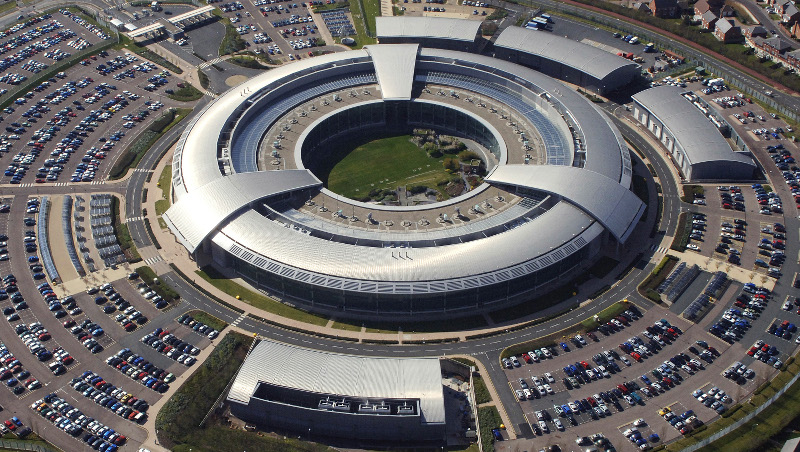GCHQ snooping tribunal hearing starts today
Spooks under scrutiny by regulators after demands for hearings by privacy groups


Lawyers representing GCHQ and the government will appear before the Investigatory Powers Tribunal (IPT) to decide if the spy agency violated laws with surveillance activities unearthed by revelations from Edward Snowden.
The IPT will also hear complaints from privacy campaigners Liberty, Privacy International, Amnesty International as well as several other groups from abroad. The case will be heard at the Royal Courts of Justice.
The case has been lodged with the IPT to challenge a ruling in July 2013 by the Intelligence and Security Committee (ISC) that the use of data collected during the Prism programme was legal.
It is the first of several to be examined by the tribunal. The civil liberties groups alleged that private communications may have been monitored under GCHQ's Tempora programme. The groups also said that data gained through the NSA Prism programme might have been shared with UK spy agencies, which circumvented UK legal protections.
"The UK government is manipulating national laws to ensure it can continue to flout international ones," said Michael Bochenek, senior director for Law and Policy at Amnesty International.
"For the first time, UK intelligence agencies will have to answer for their activities and defend their indefensible policy for mass surveillance," Bochenek said.
In a witness statement to the tribunal, Charles Farr, the director general of the Office for Security and Counter Terrorism, said that sharing intelligence with foreign agencies had led to terrorist attacks being prevented.
Get the ITPro daily newsletter
Sign up today and you will receive a free copy of our Future Focus 2025 report - the leading guidance on AI, cybersecurity and other IT challenges as per 700+ senior executives
He added that interception under the Regulation of Investigatory Powers Act 2000 (RIPA) is a "critical tool in investigations into the full range of threats to national security". In Farr's submission to the court he said he could "neither confirm or deny" the existence of Tempora, but did acknowledge Prism's existence as it had "been expressly avowed by the executive branch of the US government".
The tribunal may hear some of the most sensitive evidence regarding interceptions in private. It will look at whether Tempora and Prism exist and also whether either violates articles 8 and 10 of the European Convention on Human Rights.
The case comes after emergency surveillance legislation was brought in and is expected to pass in a couple of day's time. The legislation has been fast tracked after back room deals were made between the government and opposition parties.
Rene Millman is a freelance writer and broadcaster who covers cybersecurity, AI, IoT, and the cloud. He also works as a contributing analyst at GigaOm and has previously worked as an analyst for Gartner covering the infrastructure market. He has made numerous television appearances to give his views and expertise on technology trends and companies that affect and shape our lives. You can follow Rene Millman on Twitter.
-
 Former GCHQ intern risked national security after taking home top secret data
Former GCHQ intern risked national security after taking home top secret dataNews A former GCHQ intern has pleaded guilty to transferring data from a top-secret computer onto his work phone.
By Bobby Hellard
-
 Businesses must get better at sharing cyber information, urges former GCHQ chief
Businesses must get better at sharing cyber information, urges former GCHQ chiefJeremy Fleming, the former head of GCHQ, has warned businesses face increasingly sophisticated cyber attacks on critical national infrastructure (CNI).
By Rory Bathgate
-
 Capita tells pension provider to 'assume' nearly 500,000 customers' data stolen
Capita tells pension provider to 'assume' nearly 500,000 customers' data stolenCapita told the pension provider to “work on the assumption” that data had been stolen
By Ross Kelly
-
 Gumtree site code made personal data of users and sellers publicly accessible
Gumtree site code made personal data of users and sellers publicly accessibleNews Anyone could scan the website's HTML code to reveal personal information belonging to users of the popular second-hand classified adverts website
By Connor Jones
-
 Pizza chain exposed 100,000 employees' Social Security numbers
Pizza chain exposed 100,000 employees' Social Security numbersNews Former and current staff at California Pizza Kitchen potentially burned by hackers
By Danny Bradbury
-
 UK and US pledge to punish cyber criminals at annual meeting
UK and US pledge to punish cyber criminals at annual meetingNews Intelligence and defence officials met at the annual forum to discuss approaches to cyber security for the years ahead
By Connor Jones
-
 83% of critical infrastructure companies have experienced breaches in the last three years
83% of critical infrastructure companies have experienced breaches in the last three yearsNews Survey finds security practices are weak if not non-existent in critical firms
By Rene Millman
-
 Identity Automation launches credential breach monitoring service
Identity Automation launches credential breach monitoring serviceNews New monitoring solution adds to the firm’s flagship RapidIdentity platform
By Praharsha Anand

